Why Disability Inclusion Matters.
People with disabilities face significant employment barriers and represent one of the largest untapped talent pools. Disability inclusion ensures that these people have the same rights, privileges, and opportunities at work, while helping organizations build inclusive workplaces and achieve their goals.
Disability Demographics:
People with disabilities represent the largest minority group around the world. In the United States people with disabilities make up 22% of the population with a total of 61 million Americans who have a disability. Globally, people with disabilities are 15% of the population, representing over 1 billion People.
- Statistics | U.S. Department of Labor (dol.gov)
- Disability Impacts All of Us Infographic | CDC
- Disability and health (who.int)
As HR professionals and diversity practitioners are increasingly discussing intersectionality in the workplace, it is important to include disability as part of the intersectionality conversations.
Focusing on only one aspect of a person’s workplace experience can make a person feel excluded. HR professionals should remember that disability co-exists in the broader diversity context because disability can affect all other diversity groups. Disability IS Diversity.
- Intersectionality is key to workplace diversity, inclusion gains | HR Dive
- The importance of intersectionality in HR (hrmagazine.co.uk)
- Intersectionality for tackling diversity and inclusion | World Economic Forum (weforum.org)
So, What is Disability Inclusion?
Disability inclusion is the concept that people with disabilities have the same rights, privileges and opportunities as all other diversity groups. In addition, people with disabilities often face an issue around accessibility that other diversity groups typically may not experience.
When it comes to inclusion, access and accessibility must be considered, including physical access to facilities and the ability to access online information including job applications, training materials and even access of day-to-day work products.
- 4 Ways to Improve Your Company’s Disability-Inclusion Practices (hbr.org)
- What is Disability Inclusion? (globaldisabilityinclusion.com)
- Disability Inclusion Overview (worldbank.org)
What is Ableism?
Ableism (like racism) is a fundamental belief that a person with a disability has less value and limited ability to contribute at work or in their community, and therefore should have fewer rights and lesser access to resources, goods, services and most importantly, the ability to earn fair compensation.
- Ableism 101 – What is Ableism? What Does it Look Like? (accessliving.org)
- Words Matter, And It’s Time To Explore The Meaning Of “Ableism.” (forbes.com)
Changing Perspectives: An Untapped Pipeline
Companies that prioritize disability inclusion can capitalize on the talents and skills of a large and often untapped talent pool, representing 15% of the world’s population.
- Diverse Perspectives: People with Disabilities Fulfilling Your Business Goals | U.S. Department of Labor (dol.gov)
- Helping Untapped Talent Pool Rejoin the Workforce: Good for Workers, Businesses, and Economy – AAPD
- Expand The Talent Pipeline: Focus On Skills, Not Degrees (forbes.com)
- Finding Candidates with Disabilities (askearn.org)
A Consumer Market Not to Be Ignored
Additionally, in the U.S. the disability consumer market is worth $220 billion and globally it is $1 trillion. This represents an enormous market opportunity for companies to attract a demographic with one of the largest spending powers across all diversity groups.
- Getting to Equal: The Disability Inclusion Advantage | Accenture
- A Hidden Market: The Purchasing Power of Working-Age Adults with Disabilities (air.org)
Creating an Inclusive Culture
The key to successful includsion of people with disabilities is to ensure you authentically include those with disabilities in all existing aspects of your diversity efforts, as well as consider them throughout every stage of the employment lifecycle.

